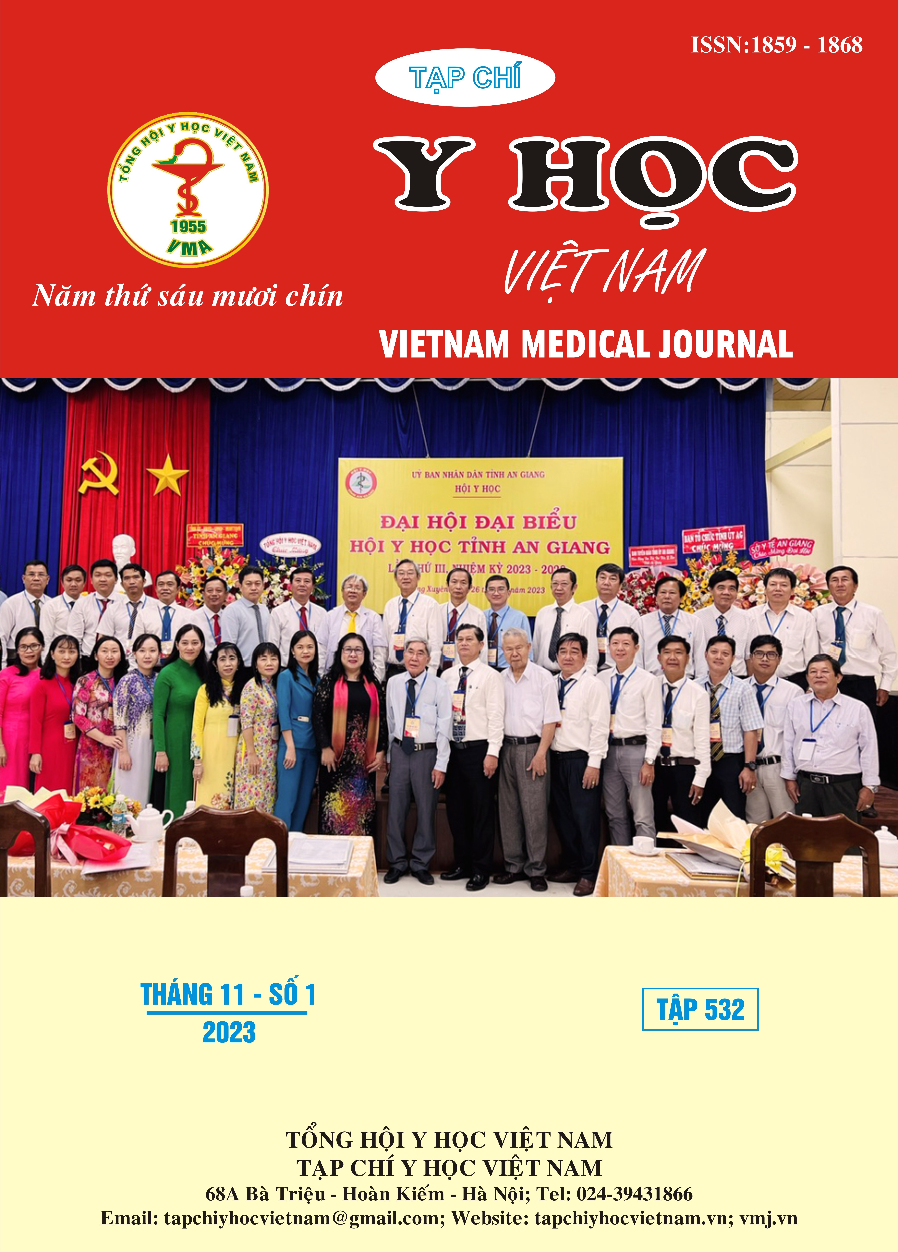TRANSLATION OF THE BRIEFCOPE 28-ITEM COPING STRATEGY SCALE, CONTENT VALIDITY, INTERNAL RELIABILITY, AND CORRELATIONS AMONG COPING STRATEGIES USED IN BREAST CANCER PATIENTS AT HO CHI MINH CITY ONCOLOGY HOSPITAL
Main Article Content
Abstract
Rational for study: The incidence of breast cancer is increasing in Vietnam. The Briefcope scale, used to assess coping strategies, has been translated and evaluated for reliability and validity in various countries. However, in Vietnam, there are limited studies that have utilized this scale on cancer patients, especially breast cancer patients. Therefore, this research aims to appropriately translate the scale for the patient population and explore the correlations between coping strategies among breast cancer patients. Methods: The study was conducted in two stages, involving professional evaluation of the translated scale's content and followed by the second phase on 235 breast cancer patients at Ho Chi Minh City Oncology Hospital. Results: The findings from the translation and content validity assessment indicate that the scale is suitable for use with breast cancer patients, as evidenced by the high internal reliability, measured through the Cronbach's Alpha coefficient, for both the 28-question total scale and its 14 subscales. The coping strategies employed by breast cancer patients in the sample predominantly consisted of positive adaptive responses. While some strategies proved more effective than others, it is essential to recognize that what works for one cancer patient may not be suitable for another. Hence, assisting patients in identifying inappropriate coping methods, such as giving up or avoiding, and encouraging active problem-solving and acceptance of the illness is crucial and necessary for enhancing their ability to cope positively.
Article Details
Keywords
Briefcope, breast cancer, content validity, internal reliability, correlation
References
2. CS C. You want to measure coping but your protocol's too long: consider the brief COPE. Int J Behav Med. 1997;4(1):92-100.
3. DG B. Sample size requirements for testing and estimating coefficient alpha. Educ Behav Stat. 2002;27(4):335 - 340.
4. EA E, WF A-E, HS A, O F, ME E. Coping Strategies in Egyptian Ladies with Breast Cancer. Breast cancer: basic and clinical research. Breast Cancer (Auckl). 2014;8:97-102.
5. J L, VA L. Coping strategies and predictors of general well‐being in women with breast cancer in the People's Republic of China. Nurs Health Sci. 2007;9(3):199-204.
6. Hack TF, Degner LF. Coping responses following breast cancer diagnosis predict psychological adjustment three years later. Psycho-Oncology. 2003;13(14):235-247.
7. Kneier A, Rosenbaum EH, Rosenbaum I, Behar D, Fobair P. Coping with cancer: Ten Steps toward Emotional Well-Being. In. Stanford Medicine Magazine2019:170-181.
8. Carver CS, Connor-Smith J. Personality and coping. Annu Rev Psychol. 2010;61:679-704.
9. R H, S S, H K-G, S G. Variability and stability of coping in women with breast cancer. Support Care Cancer. Support Care Cancer. 2012;20(10):2277-2285.
10. Adaptive and maladaptive coping strategies among patients with advanced cancer. Journal of Clinical Oncology.39(15).


